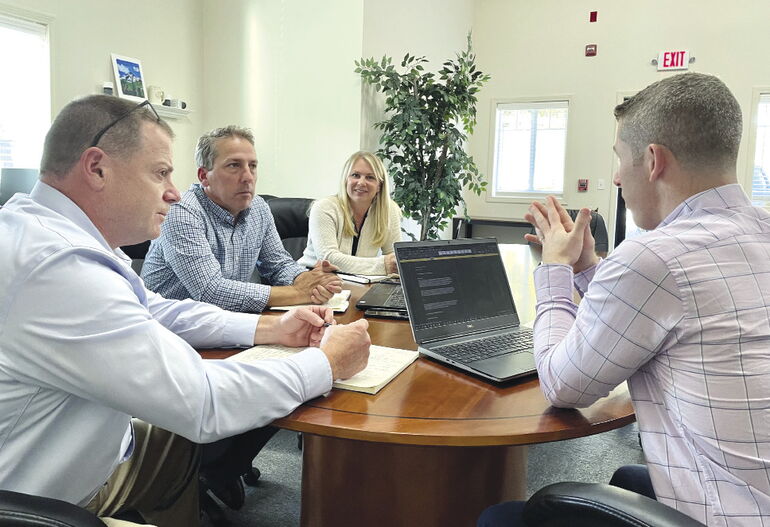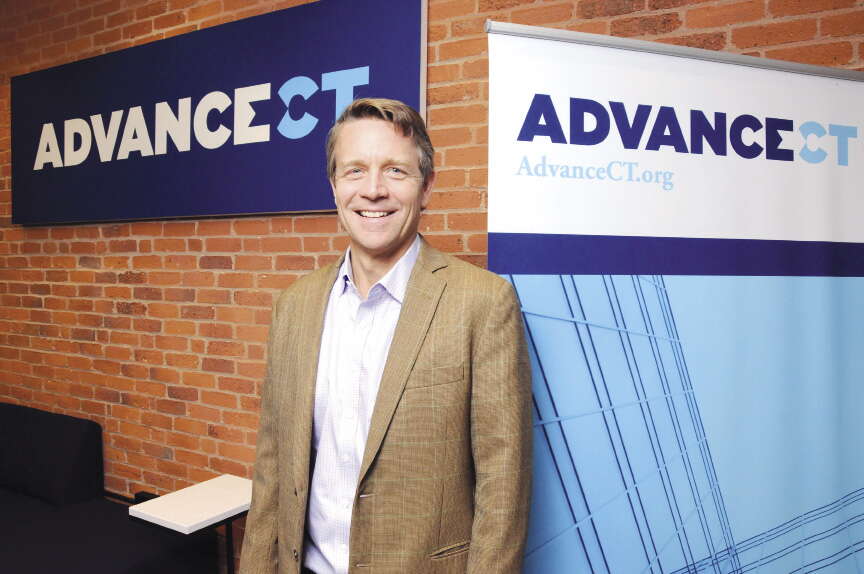
Processing Your Payment
Please do not leave this page until complete. This can take a few moments.
-
News
-
Editions
-
- Lists
-
Viewpoints
-
HBJ Events
-
Event Info
- 2024 Economic Outlook Webinar Presented by: NBT Bank
- Best Places to Work in Connecticut 2024
- Top 25 Women In Business Awards 2024
- Connecticut's Family Business Awards 2024
- What's Your Story? A Small Business Giveaway 2024 Presented By: Torrington Savings Bank
- 40 Under Forty Awards 2024
- C-Suite and Lifetime Achievement Awards 2024
- Connecticut's Health Care Heroes Awards 2024
-
-
Business Calendar
-
Custom Content
- News
-
Editions
View Digital Editions
Biweekly Issues
- April 15, 2024
- April 1, 2024
- March 18, 2024
- March 4, 2024
- February 19, 2024
- February 5, 2024
- January 22, 2024
- January 8, 2024
- Dec. 11, 2023
- + More
Special Editions
- Lists
- Viewpoints
-
HBJ Events
Event Info
- View all Events
- 2024 Economic Outlook Webinar Presented by: NBT Bank
- Best Places to Work in Connecticut 2024
- Top 25 Women In Business Awards 2024
- Connecticut's Family Business Awards 2024
- What's Your Story? A Small Business Giveaway 2024 Presented By: Torrington Savings Bank
- 40 Under Forty Awards 2024
- C-Suite and Lifetime Achievement Awards 2024
- Connecticut's Health Care Heroes Awards 2024
Award Honorees
- Business Calendar
- Custom Content
IPO, SPAC slowdown may crimp New Haven biotech growth
 PHOTO | CONTRIBUTED
Accounting firm FML’s Frank Milone (second from left) advises a client. Milone said emerging companies must sharpen up their management teams and marketing to investors amid a turbulent time for publicly-traded growth companies.
PHOTO | CONTRIBUTED
Accounting firm FML’s Frank Milone (second from left) advises a client. Milone said emerging companies must sharpen up their management teams and marketing to investors amid a turbulent time for publicly-traded growth companies.
“The IPO market right now is more or less dead.”
That’s a notable statement coming from John Houston of Arvinas, a New Haven bioscience standout whose initial public offering in 2018 made headlines with a $120 million valuation.
Speaking at the Yale Innovation Summit in May, Houston went on to caution startup executives facing an uncertain market for any kind of capital raise in the current downturn.
“It’s a tough environment,” Houston said. “Being an entrepreneur and spinning out a company right now may be very difficult in the private setting. I do worry that some companies will find themselves in positions where they may go to the wall towards the end of the year.”
Houston’s ray of hope? Companies under stress may “find innovative ways to partner, which I think could be the more exciting way forward.”

Multimillion-dollar public offerings have punctuated the steady growth of New Haven’s bioscience sector in the past several years. Some other examples: BioXcel Therapeutics’ $60 million IPO in 2018; Trevi Therapeutics’s $55 million IPO in 2019; Rallybio’s $93 million IPO in summer 2021; and IsoPlexis’ $111 million IPO in October 2021.
On deck for going public this year was oncology startup Cybrexa Therapeutics, although the company has not made any recent statements relating to an IPO and did not reply to a request for comment by publication time. Cybrexa did announce it would be presenting at two investor conferences in June.
Most recently, SPAC deals — in which a startup merges with a “blank-check” company to go public — have also brought area bioscience startups into the headlines: Genomics-testing provider Sema4, with operations in Stamford and Branford, went public in a SPAC deal in mid-2021 valued at $2 billion.
Three med-tech companies founded by prolific Guilford entrepreneur Jonathan Rothberg also debuted publicly using SPACs deals: Butterfly Network in November 2020 in a deal worth $1.5 billion; Quantum-Si in February 2021 in a $1.46 billion deal; and Hyperfine in July 2021 in a $580 million deal.
Now both IPO and SPAC markets have slowed to a crawl nationwide due in part to higher interest rates and the specter of an impending recession. After a record-breaking 1,035 IPOs on the U.S. stock market in 2022, there were only 122 as of June 23, a 77.5% drop compared to the same period last year, according to data tracker Stock Analysis.
SPAC deals have almost completely evaporated due to both the economic downturn and increased scrutiny by the U.S. Securities and Exchange Commission. New SPAC listings plunged an estimated 94% in the second quarter of this year compared to the second quarter of 2021, according to Bloomberg Law, and the total value of the deals fell by 98%.
Although experts at Yale’s conference assured aspiring public companies that there was still plenty of “dry powder” — or venture capital funders seeking investments — in the market, the concern was apparent among panelists.
“We expect to see a lot of consolidation,” said Annie Lamont, co-founder and managing partner of Oak HC/FT, a Stamford-based venture and equity investment firm. Lamont, who focuses on investing in health care and fintech, said she also envisioned “companies that are platforms buying other companies that are really products, not platforms.”
The downturn will affect all sectors, Lamont added, lowering valuations to more realistic levels and forcing CEOs to run their companies with more discipline. What won’t change is the need for major capital investment in life sciences to keep innovation flowing.
“Money is the lifeblood of entrepreneurship,” Lamont said.
Focus on fundamentals
The recent upheaval in the markets has put a damper on venture capital and other financing activity, but the region’s fundamentals are still strong, said Frank Milone, of accounting and consulting firm FML. In addition to offices in Enfield and Glastonbury, FML also staffs an office in New Haven’s District technology and coworking campus as direct outreach to emerging companies, many seeking additional capital.
With valuations sliding, VCs are recalculating their potential stakes in companies and the timeline on their returns.
“It’s evolving pretty quickly,” Milone said. “I think you’ll see more focus on more fundamentally sound companies. It’s not going to stop, it’s just going to be different.”
More marginal startups face the biggest challenges, according to Milone.
“When the going is good, when the markets are really hot and there's a lot of money flowing in from the venture side into these companies, they have a lot more ability to take more chances,” he said.
Even though IPOs and SPACs have drawn the most attention in recent years, much of the activity around Connecticut’s startups continues to revolve around mergers and acquisitions, Milone said. Those deals are continuing, most recently Pfizer’s $11.6 billion purchase of New Haven migraine drugmaker Biohaven in May.
Milone’s advice to emerging companies is to sharpen up their management team and marketing to investors: “How is your technology different? What does it do? How does it create value? That message needs to be pretty crystal clear.”
AdvanceCT CEO Peter Denious draws on his background in private equity and venture capital to put the current uncertainty into perspective.
“I think it’s somewhat inevitable that there's going to be impact — not as many companies get funded, not as big rounds, more pressure on valuations. But you know, it just all has to work its way through the system,” Denious said.

His team at AdvanceCT, the state’s nonprofit business-recruitment arm, remains confident that New Haven’s bioscience cluster will continue to flourish in the near term and has eight to 10 life science deals in the works, Denious said. In addition, state companies based on blockchain and other digital technology could be poised for growth.
“There's just a lot to be excited about,” Denious said, referring to innovations coming out of Yale and UConn. “The question is, how do we advance to organize ourselves to be thoughtful about going out and trying to capitalize on that?”
Denious also pointed to a recent report that ranked New Haven in the top 20 nationwide for life sciences workforce base. CBRE Group singled out New Haven’s highly educated talent and concentration of life sciences researchers as among its major assets.
“We’re bullish, obviously, on the opportunity for life sciences, and Connecticut and New Haven in particular,” Denious said. “We’re going to go right on working to continue to find companies that might be interested in coming here or expanding here.”

2022 Giving Guide
This special edition informs and connects businesses with nonprofit organizations that are aligned with what they care about. Each nonprofit profile provides a crisp snapshot of the organization’s mission, goals, area of service, giving and volunteer opportunities and board leadership.
Learn more
Subscribe
Hartford Business Journal provides the top coverage of news, trends, data, politics and personalities of the area’s business community. Get the news and information you need from the award-winning writers at HBJ. Don’t miss out - subscribe today.
Subscribe
2024 Book of Lists
Delivering Vital Marketplace Content and Context to Senior Decision Makers Throughout Greater Hartford and the State ... All Year Long!
Read Here-
2022 Giving Guide
This special edition informs and connects businesses with nonprofit organizations that are aligned with what they care about. Each nonprofit profile provides a crisp snapshot of the organization’s mission, goals, area of service, giving and volunteer opportunities and board leadership.
-
Subscribe
Hartford Business Journal provides the top coverage of news, trends, data, politics and personalities of the area’s business community. Get the news and information you need from the award-winning writers at HBJ. Don’t miss out - subscribe today.
-
2024 Book of Lists
Delivering Vital Marketplace Content and Context to Senior Decision Makers Throughout Greater Hartford and the State ... All Year Long!
ABOUT
ADVERTISE
NEW ENGLAND BUSINESS MEDIA SITES
No articles left
Get access now
In order to use this feature, we need some information from you. You can also login or register for a free account.
By clicking submit you are agreeing to our cookie usage and Privacy Policy
Already have an account? Login
Already have an account? Login
Want to create an account? Register
Get access now
In order to use this feature, we need some information from you. You can also login or register for a free account.
By clicking submit you are agreeing to our cookie usage and Privacy Policy
Already have an account? Login
Already have an account? Login
Want to create an account? Register






0 Comments